The Jasmine Revolution in Tunisia has sent a shock wave through the Arab world. Never before has the street toppled a dictator. Now Egypt is shaking, Hosni Mubarak’s 30-year-old regime faces its most serious threat ever. The prospect of change in Egypt inevitably raises questions about the oldest and strongest opposition movement in the country, the Muslim Brotherhood, also known as Ikhwan. Can America work with an Egypt where the Ikhwan is part of a transition or even a new government?
A protester runs in front of a burning barricade during a demonstration in Cairo January 28, 2011.
View Larger
© Goran Tomasevic / Reuters
RELATED CONTENT
What's the Truth About the Muslim Brotherhood?
Bruce Riedel
USA Today
February 15, 2011
The Real Loser in Egypt's Uprising
Bruce Riedel
The Daily Beast
February 13, 2011
The End of the Mubarak Era
Bruce Riedel
The Daily Beast
January 29, 2011
More Related Content »
The short answer is it is not our decision to make. Egyptians will decide the outcome, not Washington. We should not try to pick Egyptians' rulers. Every time we have done so, from Vietnam’s generals to Afghanistan’s Hamid Karzai, we have had buyer’s remorse. But our interests are very much involved so we have a great stake in the outcome. Understanding the Brotherhood is vital to understanding our options.
The Muslim Brethren was founded in 1928 by Shaykh Hassan al Banna as an Islamic alternative to weak secular nationalist parties that failed to secure Egypt’s freedom from British colonialism after World War I. Banna preached a fundamentalist Islamism and advocated the creation of an Islamic Egypt, but he was also open to importing techniques of political organization and propaganda from Europe that rapidly made the Brotherhood a fixture in Egyptian politics. Branches of the Brotherhood grew across the Arab world. By World War 2, it became more violent in its opposition to the British and the British-dominated monarchy, sponsoring assassinations and mass violence. After the army seized power in 1952, it briefly flirted with supporting Gamal Abdel Nasser’s government but then moved into opposition. Nasser ruthlessly suppressed it.
Nasser and his successors, Anwar Sadat and Mubarak, have alternatively repressed and demonized the Brotherhood or tolerated it as an anti-communist and right-wing opposition. Technically illegal, it has an enormous social-welfare infrastructure that provides cheap education and health care. In Egypt’s unfair elections, it is always the only opposition that does well even against the heavily rigged odds.
The Egyptian Brotherhood renounced violence years ago, but its relative moderation has made it the target of extreme vilification by more radical Islamists. Al Qaeda’s leaders, Osama bin Laden and Ayman Zawahiri, started their political lives affiliated with the Brotherhood but both have denounced it for decades as too soft and a cat’s paw of Mubarak and America.
Egypt’s new opposition leader, former International Atomic Energy Agency head Mohamed ElBaradei, has formed a loose alliance with the Brotherhood because he knows it is the only opposition group that can mobilize masses of Egyptians, especially the poor. He says he can work with it to change Egypt. Many scholars of political Islam also judge the Brotherhood is the most reasonable face of Islamic politics in the Arab world today. Skeptics fear ElBaradei will be swept along by more radical forces.
The truth is that Mubarak held on to power for so long--with no vice president, no succession process anointing an heir (even his son Gamal has never been publicly made the chosen one), and no end to martial emergency rule--that Egypt is entirely uncharted waters now. No one knows how the army and security forces will react to changes that could threaten their hold on power and their prerogatives. No one knows who really controls the street or if the demonstrations will have legs. But it looks like the beginning of the end of Mubarak’s time.
For America, this is all uncharted waters, too. Washington has been confronted with unexpected change in big Muslim countries before, Iran in 1978 and Pakistan in 2007, and never gotten right the difficult balance of helping history move forward and preserving our equities.
The most problematic issue between the Ikhwan and America will be Israel. The Brotherhood raised an army to fight Israel in its war of independence in 1948. Its Palestinian branch was the nucleus for Hamas, and the Brotherhood retains links to the rulers of Gaza. The Ikhwan’s leaders understand the peace treaty with Israel is the cornerstone of modern Egyptian foreign policy and underwrites America’s $2 billion annual aid as well as the lucrative tourist trade, but they are very critical of Israel, its leader, and policies. Their base is fundamentally opposed to any Egyptian cooperation with Israel.
The Israelis find themselves in the very unpleasant position of having a huge stake in the outcome of what happens in Egypt and absolutely no ability to influence the course of events, except to do harm by foolish statements or actions. No wonder a former Israeli ambassador to Cairo said this week that “I am very much afraid that [the opposition] wouldn’t be as committed to peace with Israel and would be bad for Israel.”
The crisis in North Africa has come up unexpectedly for President Obama and Secretary Clinton. They have moved quickly to grasp the challenge. They know the stakes and the delicacy of our options. Neither complacency nor panic is the right American response.
They should not be afraid of the Muslim Brotherhood. Living with it won’t be easy but it should not be seen as inevitably our enemy. We need not demonize it nor endorse it. In any case, Egyptians now will decide their fate and the role they want the Ikhwan to play in their future.
Friday, February 25, 2011
Subscribe to:
Post Comments (Atom)
Lawat Parlimen
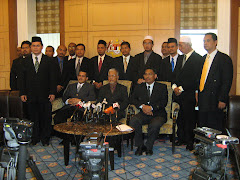
ADUN Kedah diketuai Speaker dan Timbalan telah datang mengunjungi Parlimen baru-baru ni untuk menyaksikan hari ini dalam sejarah bekas mangsa kezaliman ISA dua kali YB Sdr Yusof Husin mengangkat sumpah sebagai Ahli Dewan Negara. Kami hanya sempat berbicara seketika waktu rehat dan selepas itu mereka mempunyai agenda lain untuk dibereskan. Diharap dimasa akan datang kita akan dapat melakukan yang lebih baik lagi apabila kehadiran direncanakan dengan teliti melalui Setiausaha Sekretariat parlimen PAS Sdr Wan Johari Wan Omar.













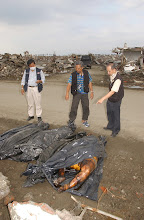
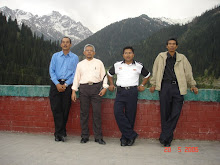
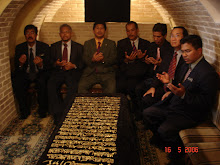

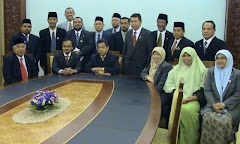





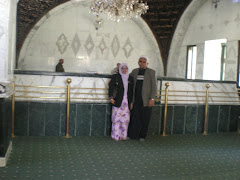
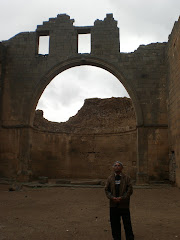


No comments:
Post a Comment